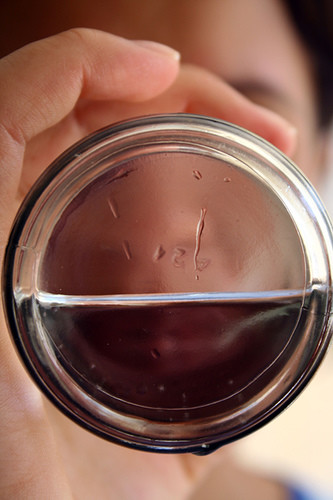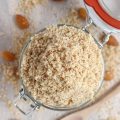Питье моеДве-три чашки кофе или чая в течение day, at best - a small bottle of mineral water - often this is all the liquid we pamper our body with. And what about juices, which advertising presents as almost a guarantee of health, or milk, which was considered as such ten years ago? How much water should you drink per day? Fruit juices are not"contain a sufficient amount of water necessary to maintain the body's water balance," says Valery Sergeev, a candidate of medical sciences and gastroenterologist-nutritionist. "Meanwhile, water is necessary to digest and break down sugars and proteins. When we drink milk or juices, some of the water contained in them is used to digest sugar and proteins from the drink itself." In addition, most juices from packages contain sugar, which causes thirst and creates an additional "sugar" load on the pancreas, as well as acids (citric, ascorbic) and synthetic vitamins. Carbonated drinks often contain corn syrup, which contains a large amount of fructose, which is transformed directly into triglycerides (building material for fat), and not into glucose, which is fuel for the brain. Now about milk: its protein is digested for quite a long time, and the enzyme lactase is required to break down lactose (milk sugar), which is not produced by all people. Freshly squeezed juices are healthier, but this is also a kind of super-concentrated artificial drink - it would be much healthier to eat the whole fruit, along with the fiber and ballast substances it contains. In short, no other liquids - even those that we are accustomed to considering healthy and natural - will not replace ordinary drinking water. Water alone Many people remember only the formula for water H2O from chemistry lessons, as well as the certainty that without water, life would not have arisen on our planet at all. This is true: almost all biochemical reactions occur with its direct participation. After all, water is a universal solvent. Building material for the constant renewal of the body (i.e. for protein synthesis) and energy sources (carbohydrates), oxygen, hormones and enzymes circulate in the intercellular space and enter the cells, being dissolved in water. And metabolic products are excreted from the cells and from the body also in solution. Water "enters and exits" through special water channels located in the plasma membrane of cells and called "aquaporins" (for their discovery, two American scientists - Peter Agree and Roderic McKinnon - were awarded the Nobel Prize in Chemistry in 2003). If other substances are added to the water molecule - because the dissolution process is accompanied by complex interactions with salts, sugars, acids, alcohol, chemicals that arise during the absorption of drugs or food additives, — these bulky formations are not able to pass through a small water pore. There seems to be water in the body (sometimes there is even too much of it, and we call it fluid retention, edema), but it does not penetrate into the cells, as a result of which metabolic processes are slowed down, toxins are not removed. Naturally, a person feels an incomprehensible malaise, fatigue, the cause of which is literally dissolved in water.
How much water should you drink per day? Fruit juices are not"contain a sufficient amount of water necessary to maintain the body's water balance," says Valery Sergeev, a candidate of medical sciences and gastroenterologist-nutritionist. "Meanwhile, water is necessary to digest and break down sugars and proteins. When we drink milk or juices, some of the water contained in them is used to digest sugar and proteins from the drink itself." In addition, most juices from packages contain sugar, which causes thirst and creates an additional "sugar" load on the pancreas, as well as acids (citric, ascorbic) and synthetic vitamins. Carbonated drinks often contain corn syrup, which contains a large amount of fructose, which is transformed directly into triglycerides (building material for fat), and not into glucose, which is fuel for the brain. Now about milk: its protein is digested for quite a long time, and the enzyme lactase is required to break down lactose (milk sugar), which is not produced by all people. Freshly squeezed juices are healthier, but this is also a kind of super-concentrated artificial drink - it would be much healthier to eat the whole fruit, along with the fiber and ballast substances it contains. In short, no other liquids - even those that we are accustomed to considering healthy and natural - will not replace ordinary drinking water. Water alone Many people remember only the formula for water H2O from chemistry lessons, as well as the certainty that without water, life would not have arisen on our planet at all. This is true: almost all biochemical reactions occur with its direct participation. After all, water is a universal solvent. Building material for the constant renewal of the body (i.e. for protein synthesis) and energy sources (carbohydrates), oxygen, hormones and enzymes circulate in the intercellular space and enter the cells, being dissolved in water. And metabolic products are excreted from the cells and from the body also in solution. Water "enters and exits" through special water channels located in the plasma membrane of cells and called "aquaporins" (for their discovery, two American scientists - Peter Agree and Roderic McKinnon - were awarded the Nobel Prize in Chemistry in 2003). If other substances are added to the water molecule - because the dissolution process is accompanied by complex interactions with salts, sugars, acids, alcohol, chemicals that arise during the absorption of drugs or food additives, — these bulky formations are not able to pass through a small water pore. There seems to be water in the body (sometimes there is even too much of it, and we call it fluid retention, edema), but it does not penetrate into the cells, as a result of which metabolic processes are slowed down, toxins are not removed. Naturally, a person feels an incomprehensible malaise, fatigue, the cause of which is literally dissolved in water.

Making Money with Desserts: Success Stories
Evgeniya Polischuk (Fedutinova) instagram:@evgeniyafedutinovavk.com/janeshomebaking– It all started with baking for family and friends. Gradually, I started posting photos of my baked goods on Instagram – and orders started coming in. I made my first custom-made cake on October 13, 2014, and a little earlier I started making macaroons and cupcakes. You could say that the business “found me”, I am very […]

Soups are cold recipes with photos
Cold cucumber soup with yogurt and lemonsorbet from the chef of the restaurant La Taverna Alexander Zhurkin Photo: Getty Images Ingredients: Plain yoghurt – 125 g Cucumber – 150 g Lemon/lime sorbet – 50 g Cocktail shrimp – 24 g Fresh ginger juice – 1 g Lime juice – 5 g Fresh orange juice – 5 g Parsley – 1 g Pink pepper – 1 g Watercress – […]

barbeque kebab
Pork tenderloin in glaze Photo:Dmitry Bayrak/dbstudioPreparation time: 20 minutes + marinating time.Calories: 454 kcal per serving.For 4 servings: 4 pork tenderloins (approximately 300 g each), 1 onion, 2 cloves of garlic, 1 tsp. lemon zest, 1 tsp. lemon juice, a pinch of ground cumin, coriander and turmeric, 1 tbsp. vegetable […]

Pierre Duacan: dietary recipes: Ducane diet
Beetroot soup Photo:Season’S, Luxury Hotels RepresentationYou will need:· Boiled beetroot – 60 g· Fresh cucumbers – 20 g· Red radish – 20 g· Green onions – 10 g· Egg – 1 pc.· Drinking mineral water – 200 g· Salt – 1 gPreparation:· Boil the egg and beetroot.· Grate the cucumbers, radish and part of the beetroot. Put everything […]





